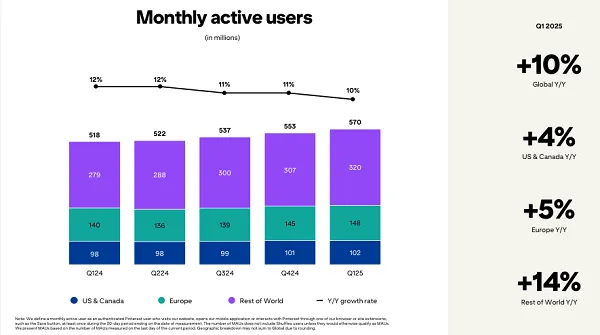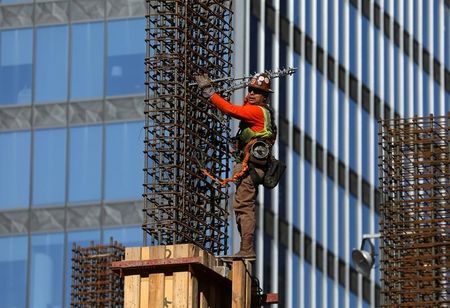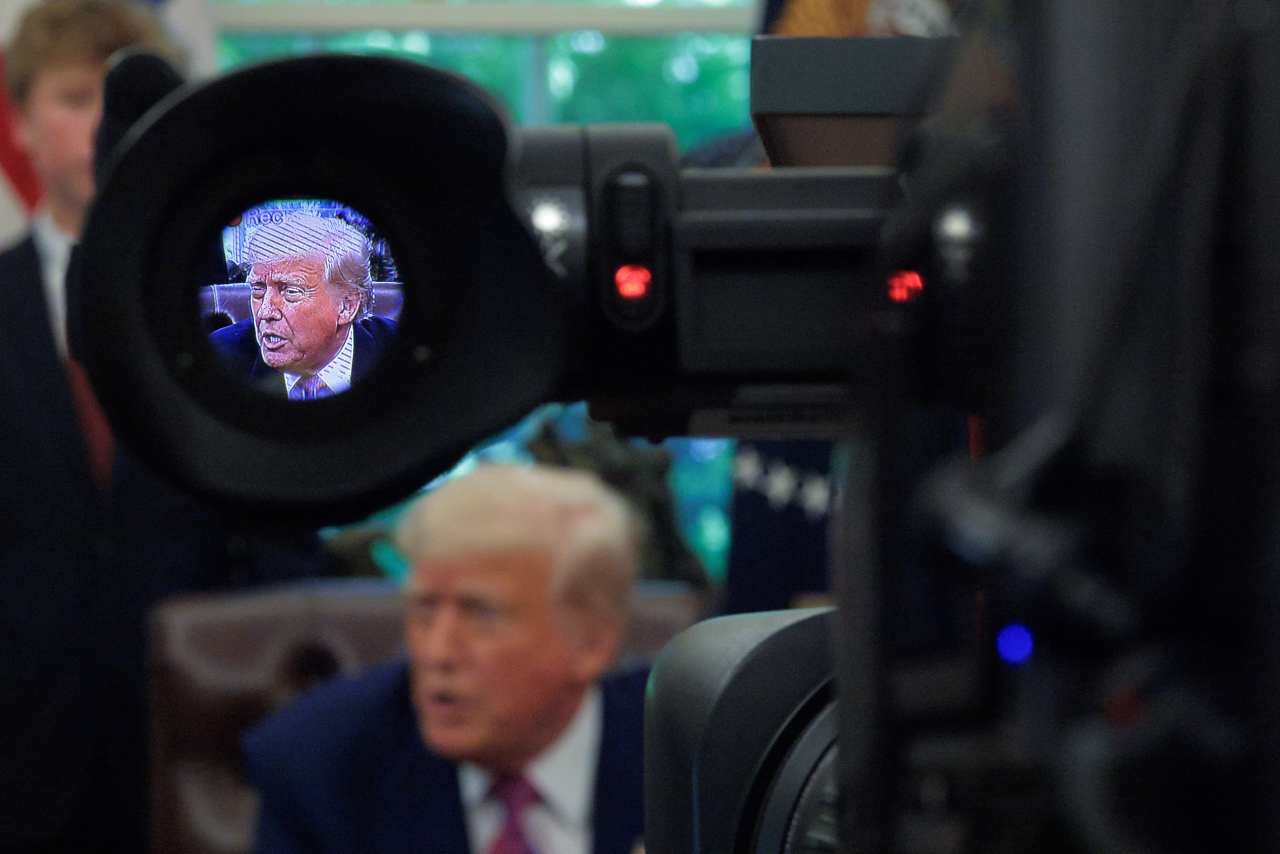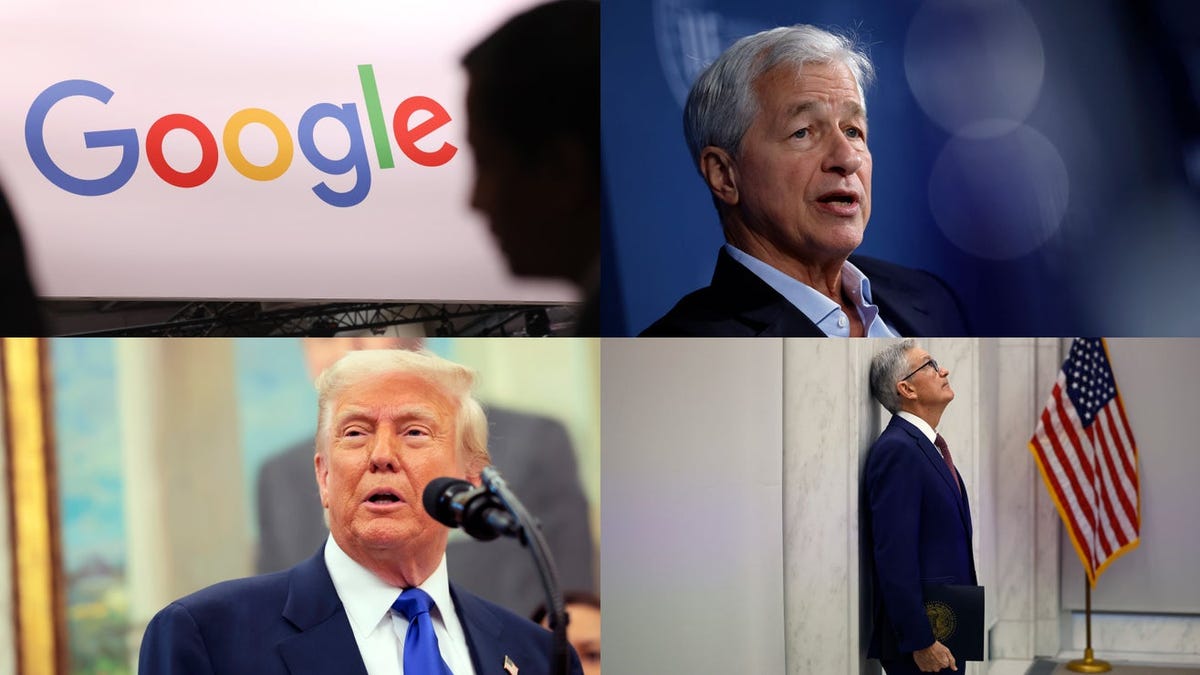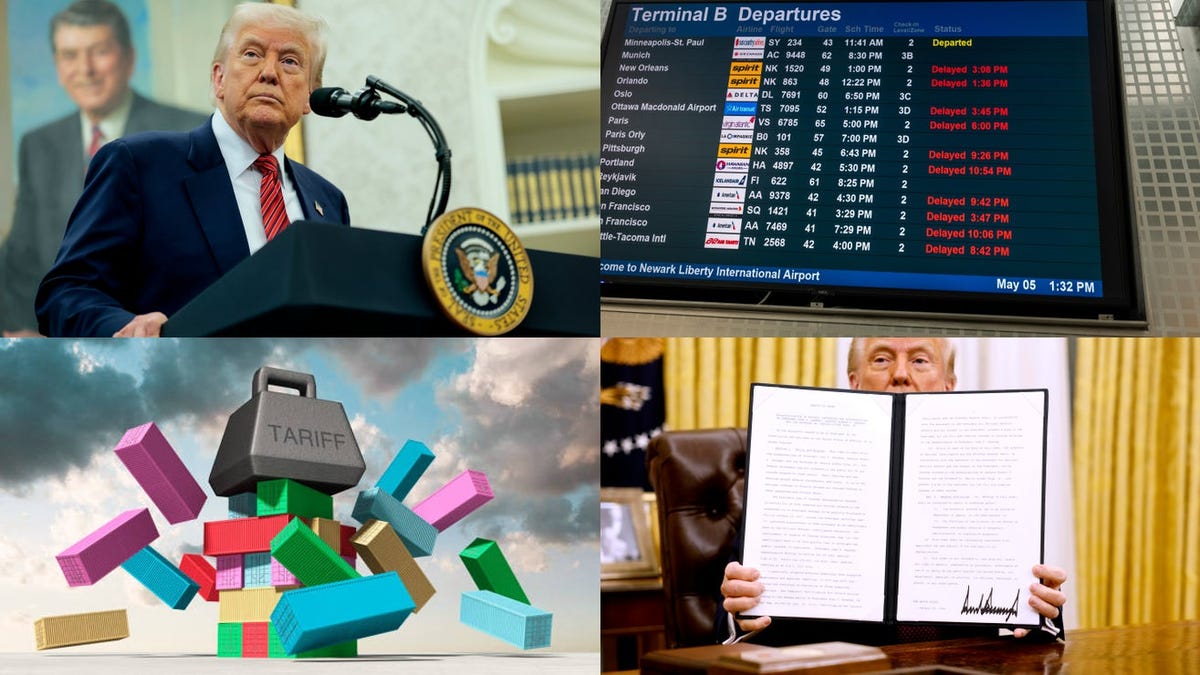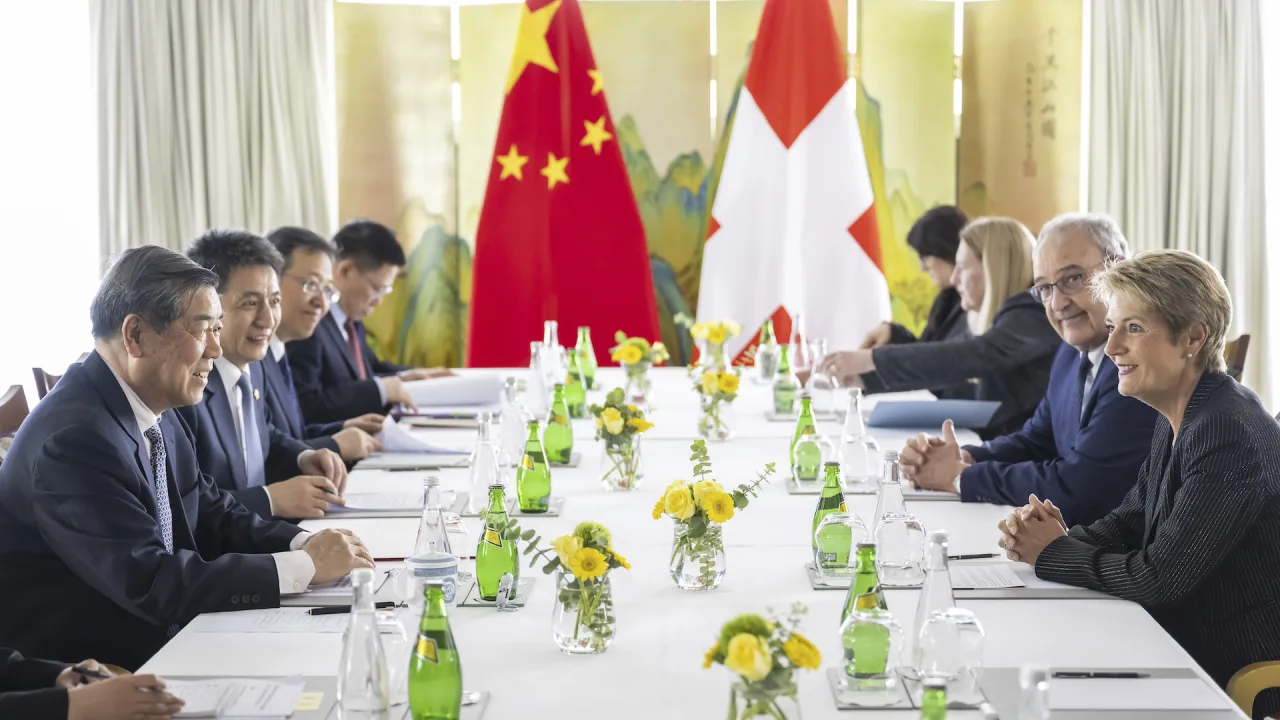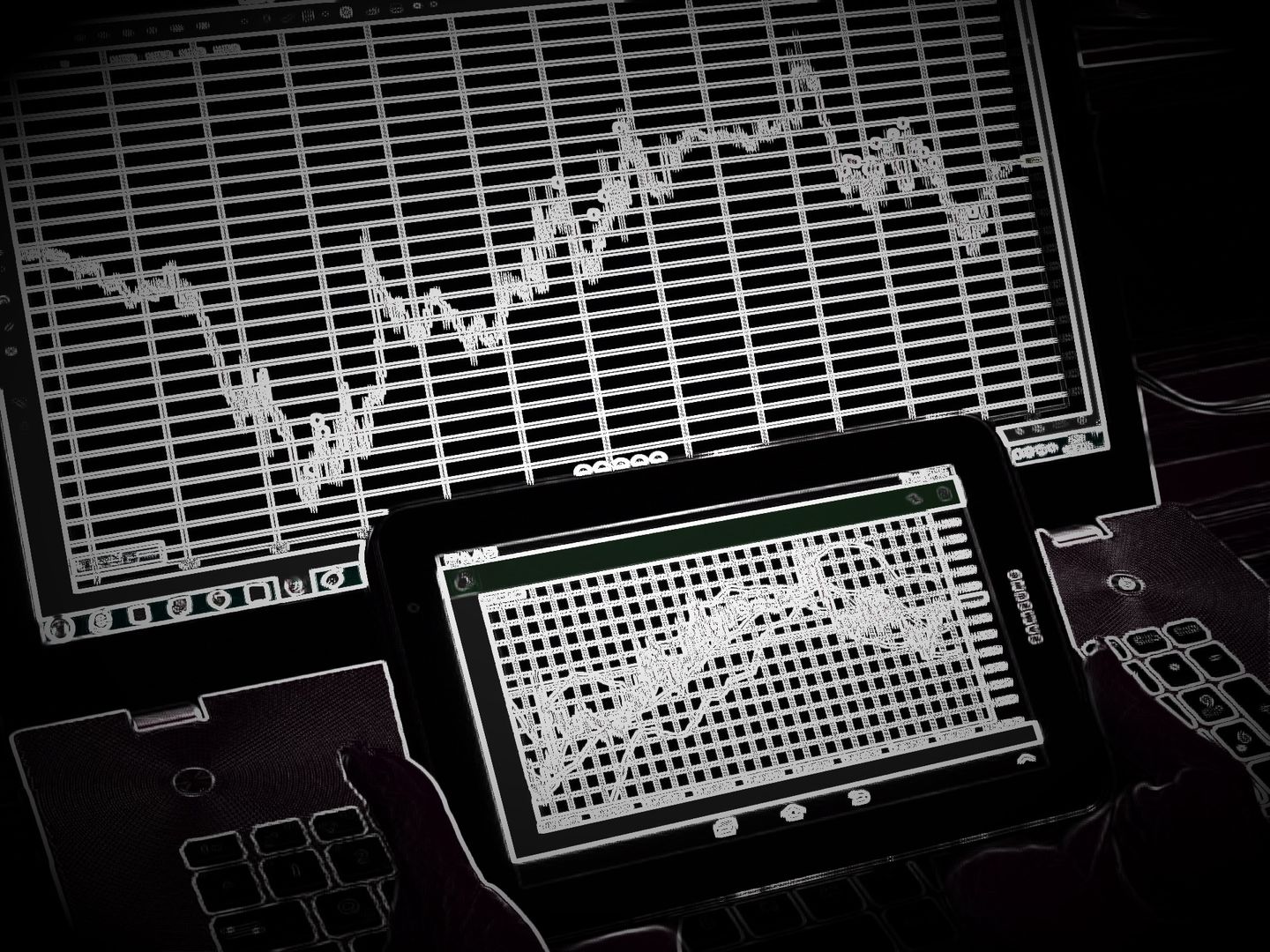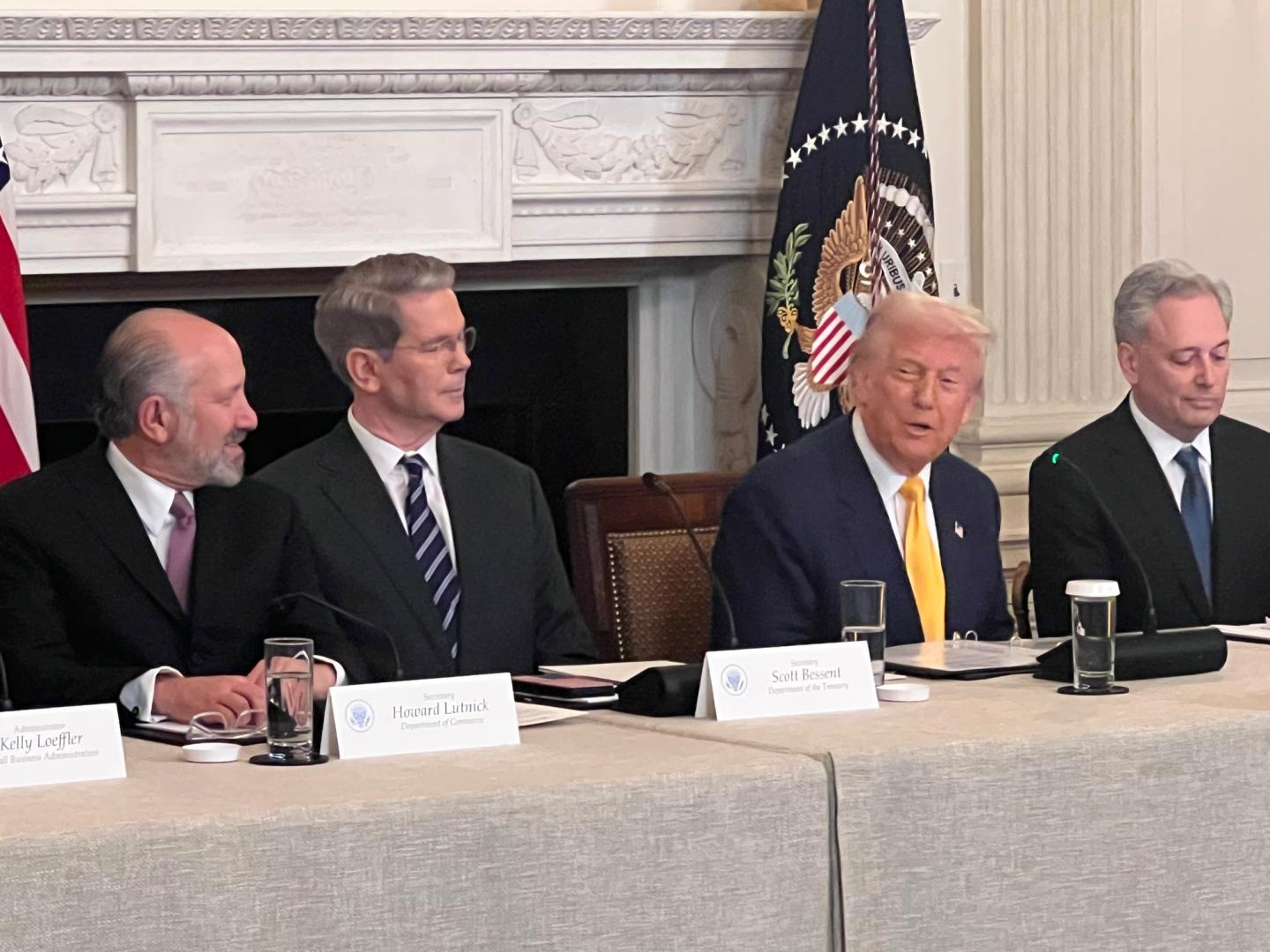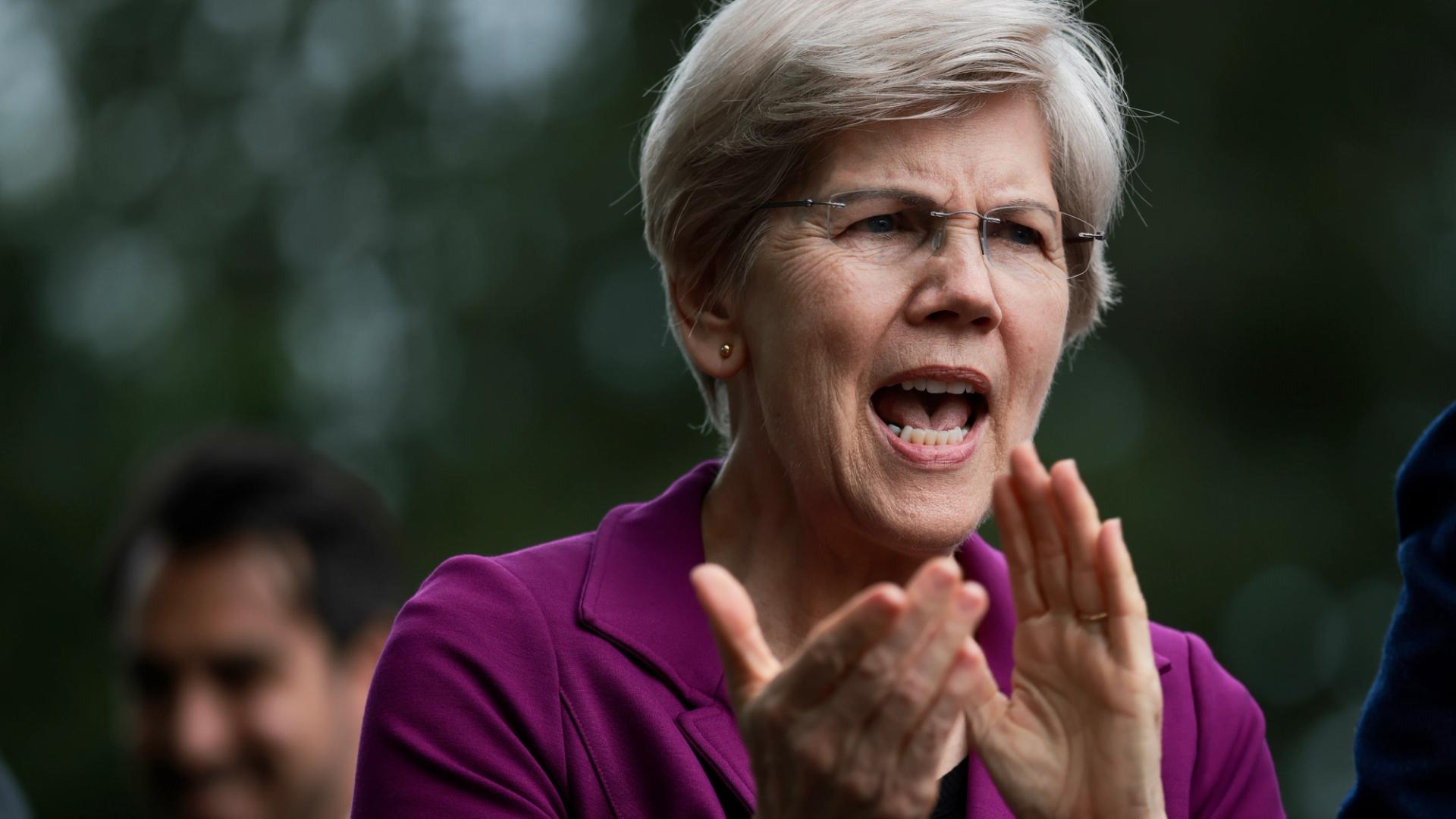Trump calls emptying U.S. ports a ‘good thing’ despite supply-chain panic because ‘that means we lose less money’
The president has repeatedly claimed the U.S. has a $1 trillion trade deficit with China, though economists argue a trade deficit isn’t inherently negative.

- Shipping volumes at U.S. ports have decreased drastically as a result of sweeping tariffs. Despite supply-chain professionals warning the port traffic slowdown could lead to goods shortages and increased consumer prices, President Donald Trump said emptying ports was a “good thing” because it means less trade with China.
As logistics professionals sound the alarms on emptying U.S. ports as a result of steep tariffs, President Donald Trump said those major import slowdowns are actually a boon.
Following Trump’s introduction of sweeping tariffs, shipping volumes have fallen considerably, according to data from container-tracking software company Vizion. In the period between the five weeks before and five weeks after Trump introduced and implemented his tariff plan, virtually all major U.S. ports saw a decline in the number of container books. The Port of Portland in Oregon saw a 50% drop in exports, and the Port of Los Angeles, the U.S.’s largest outpost, had 17% lower exports. From the week ending April 28, Vizion reported a 43% week-over-week decrease in containers.
Port of Los Angeles executive director Gene Seroka warned last month of a “precipitous drop” in shipping volumes, saying American retailers will have fully stocked shelves for only about another six weeks.
Trump not only acknowledged the shipping slowdown in a Thursday press briefing announcing a trade deal with the UK; he seemed heartened by it.
"We're seeing as a result that ports here in the U.S., the traffic has really slowed and now thousands of dockworkers and truck drivers are worried about their jobs," a reporter said in the press briefing.
"That means we lose less money,” Trump said. “When you say it slowed down, that's a good thing, not a bad thing.”
Trump has doubled down on the need for tariffs to help reverse a trade deficit to China, which he says is $1 trillion.
"From 500 billion to 1.1 trillion…frankly if we didn't do business we would've been better off," he said on Thursday.
China exported goods worth about $525 billion to the U.S. last year, which accounts for about 15% of its exports, according to data from China’s General Administration of Customs. The U.S. estimates it received about $439 billion in Chinese exports in 2024, with $143.5 billion of U.S. goods exported to China. The goods-trade deficit was about $295 billion in 2024.
Trump has seemed to waver on the severity with which to tax China. As of Friday, he’s floating an 80% levy on Chinese goods, a substantial cut from the 145% tariff already in place, though some investors warn the steep tax would still be prohibitive to trade.
“The Trump administration is delivering relief to the American people from the disaster of Bidenomics while laying the groundwork for a long-term restoration of American Greatness,” White House deputy press secretary Kush Desai told Fortune in a statement, citing data from the White House reporting a 22% increase in gross domestic investment in March, as well as cooling inflation, albeit before much of the tariffs’ implementation.
Desai told Fortune the U.S. can’t rely on foreign imports because of the Covid-era pharmaceuticals and computer-chip shortages.
Logistics and trade concerns
While Trump claims plummeting U.S. port traffic will help save money, supply-chain professionals have sounded the alarm on the ramifications of these shipping disruptions to the logistics industry and consumers alike.
The threat of tariffs caused companies to pull forward shipments to avoid the taxes, but the influx of goods now may mean either excess inventory or shortages down the line, Peter Sand, chief analyst of freight analytics platform Xeneta, previously told Fortune. Shortages may mean higher prices for companies, which are likely to get passed down to consumers. To manage excess inventory, companies may have to invest more heavily in storage warehouses or ground freight for deliveries.
“Global supply chains work really well when they can go steady, so when you have stop-and-go, or when you have all of a sudden a rush of cargo like you see right now, that’s really putting a strain on global supply chains, maritime supply chains,” Sand said.
A decline in port activity could have adverse effects on labor as well. Port of LA executive director Seroka told CNN that shipment slowdowns could mean less reliable work schedules for dock workers and truckers.
Beyond supply-chain woes, some economists take issue with the foundation of Trump’s arguments for tariffs, saying that a trade deficit with China isn’t entirely a bad thing.
“We get incredibly valuable things from China,” Jason Furman, Harvard University professor of economic policy, told Fortune. “If we want to diversify that, it's something we should do over time, not by just halting all the ships coming in today.”
While trade deficits can exacerbate a dependency on another country and create some economic vulnerabilities, Furman said, they also provide desirable products to the U.S. Other economists argue tariffs would effectively sever trade with China, ending a period of expanding globalization.
According to Furman, the U.S. should stop focusing on steep taxes to sectors like consumer goods, such as produce, clothing and toys. Trump, seeming to admit tariffs could create some shortages for consumers, said last week that little girls can make do with two dolls, instead of 30.
“Tariffs on targeted sectors that are important for national security could play a role,” Furman said. “But discouraging American children from buying dolls is not a way to make America great again.”
This story was originally featured on Fortune.com







